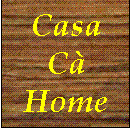


Piedmontese Grammar
Also the Piedmontese has its own irregular verbs. For each conjugation we will see what are the relevant irregularities. We note that the majority of the irregularities, in Piedmontese, is in the second conjugation.
For the first conjugation
We have four irregular verbs. We note that also the corresponding verbs in Italian are irregular. These are:
dé (to give), sté (to stay), fé (to do, to make), andé (to go).
The verbs dé, sté use the same irregular desinences. We report here the irregular tenses of the verb dé = to give. The other voices follow the rule. In parentheses there are the grammatically correct piedmontese alternatives.
Present indicative: mi i dago, ti it das(daghe, daghes,), chiel a da, noi i doma, voi i deve, lor a dan
Imperfect indicative: mi i dasìa, ti it dasìe, chiel a dasìa, noi i dasìo, voi i dasìe, lor a dasìo
Future indicative: mi i darai (dareu), ti it daras, chiel a darà, noi i daroma, voi i dareve, lor a daran
Present subjunctive: che mi i daga, che ti it daghe(daghes), che chiel a daga, che noi i dago, che voi i daghe, che lor a dago
Imperfect subjunctive: che mi i dèissa, che ti it (dèisses), che chiel a dèissa, che noi i dèisso, che voi i dèisse, che lor a dèisso
Present conditional: mi i darìa, ti it darìe(darìes), chiel a darìa, noi i darìo, voi i darìe, lor a darìo
Present imperative: (mi) - - - -, (ti) da, (chiel)ch'a daga, (noi) doma, (voi) dé, (lor) ch'a dago
Future imperative: (mi) - - - -, (ti) daras, (chiel) darà, (noi) daroma, (voi) dareve, (lor) daran
Present infinitive: dé,
Past participle: dàit,
Gerundi present: (an) dasend
We note that the Past Participle is irregular and as such it appears in the composite tenses, moreover regular.
The verb sté (to stay) is derived from what we see above just by changing the root d into st. Then:
Present indicative: mi i stago, ti it stas(staghe, staghes,), chiel a sta, noi i stoma, voi i steve, lor a stan
Imperfect indicative: mi i stasìa, ti it stasìe, chiel a stasìa, noi i stasìo, voi i stasìe, lor a stasìo
Future indicative: mi i starai (stareu), ti it staras, chiel a starà, noi i staroma, voi i stareve, lor a staran
Present subjunctive: che mi i staga, che ti it staghe(staghes), che chiel a staga, che noi i stago, che voi i staghe, che lor a stago
Imperfect subjunctive: che mi i stèissa, che ti it (stèisses), che chiel a stèissa, che noi i stèisso, che voi i stèisse, che lor a stèisso
Present conditional: mi i starìa, ti it starìe(starìes), chiel a starìa, noi i starìo, voi i starìe, lor a starìo
Present imperative: (mi) - - - -, (ti) sta, (chiel)ch'a staga, (noi) stoma, (voi) sté, (lor) ch'a stago
Future imperative: (mi) - - - -, (ti) staras, (chiel) starà, (noi) staroma, (voi) stareve, (lor) staran
Present infinitive: sté,
Past participle: stàit,
Gerundi present: (an) stasend
We note that the Past Participle is irregular and as such it appears in the composite tenses, moreover regular.
The verb fé(to do, to make) has the same irregular tenses:
Present indicative: mi i faso, ti it fas(fase), chiel a fa, noi i foma, voi i feve, lor a fan
Imperfect indicative: mi i fasìa, ti it fasìe, chiel a fasìa, noi i fasìo, voi i fasìe, lor a fasìo
Future indicative: mi i farai (fareu), ti it faras, chiel a farā, noi i faroma, voi i fareve, lor a faran
Present subjunctive: che mi i fasa, che ti it fase, che chiel a fasa, che noi i faso, che voi i fase, che lor a faso
Imperfect subjunctive: che mi i fèissa, che ti it fèisse, che chiel a fèissa, che noi i fèisso, che voi i fèisse, che lor a fèisso
Present conditional: mi i farìa, ti it farìe, chiel a farìa, noi i farìo, voi i farìe, lor a farìo
Present imperative: (mi) - - - -, (ti) fa, (chiel)ch'a fasa, (noi) foma, (voi) fé, (lor) ch'a faso
Future imperative: (mi) - - - -, (ti) faras, (chiel) farà, (noi) faroma, (voi) fareve, (lor) faran
Present infinitive: fé,
Past participle: fàit,
Gerundi present: (an) fàsend
We note that the Past Participle is irregular and as such it appears in the composite tenses, moreover regular.
Then the verb andé (to go) (as before, we notice that the verb has two roots: v..., and...
Present indicative: mi i vado, ti it vade, chiel a va, noi i andoma, voi i andeve, lor a van
Imperfect indicative: mi i andasìa, ti it andasìe, chiel a andasìa, noi i andasìo, voi i andasìe, lor a andasìo
Future indicative: mi i andrai (andreu), ti it andras, chiel a andrà, noi i androma, voi i andreve, lor a andran
Present subjunctive: che mi i vada, che ti it vade, che chiel a vada, che noi i vado, che voi i vade, che lor a vado
Imperfect subjunctive:che mi i andèissa, che ti it andèisse, che chiel a andèissa, che noi i andèisso, che voi i andèisse, che lor a andèisso
Present conditional:mi i andrìa, ti it andrìe, chiel a andrìa, noi i andrìo, voi i andrìe, lor a andrìo
Present imperative:(mi) - - - -, (ti) va, (chiel)ch'a vada, (noi) andoma, (voi) andé, (lor) ch'a vado
Future imperative:(mi) - - - -, (ti) andras, (chiel) andrà, (noi) androma, (voi) andreve, (lor) andran
Present infinitive: andé,
Past participle: andàit,
Gerundi present: (an) andand
We note that the Past Participle is irregular and as such it appears in the composite tenses, moreover regular.
For the second conjugation:
The group of seven verbs with present infinitive ending by eje (ej).
avèje (avèj) = to have di cui si è data la coniugazione completa.
dovèje (dovèj) = must, to have to
piasèje (piasèj) = to like, to please - the only particularity: also the infinitive piase
podèje (podèj) = can, to be able
savèje (savèj) = to know
valèje (valèj) = to be worth, to count, to be valid - the only particularity: also the infinitive vale
vorèje (vorèj) = to want
the derived verb dëspiasèj behaves as piasèj.
We first note that these verbs, even if belong to the second conjugation, have also an infinitive form, the most used, which does not end by e.
The verb avèje (avèj), being also an auxiliary verb, has already been seen completely.
The irregular tenses of savèj are:
Present indicative: mi i sai (seu), ti it sas, chiel a sa, noi i soma (sagoma, savoma) , voi i seve, lor a san
Present subjunctive: che mi i sàpia, che ti it sàpie, che chiel a sàpia, che noi i sàpio, che voi i sàpie, che lor a sàpio
Present imperative: (mi) - - - -, (ti) it sàpie, (chiel) ch'a sàpia, (noi) sàvoma (soma, sagoma), (voi) sàvej, (lor) ch'a sàpio
The irregular tenses of dovèj are:
Present indicative: mi i deuvo, ti it deuve, chiel a deuv, noi i dovoma, voi i deuve, lor a deuvo
Imperfect indicative: mi i dovìa, ti it dovìe, chiel a dovìa, noi i dovìo, voi i dovìe, lor a dovìo
Present subjunctive: che mi i deuva, che ti it deuve, che chiel a deuva, che noi i deuvo, che voi i deuve, che lor a deuvo
Present imperative: (mi) - - - -, (ti) deuve, (chiel) ch'a deuva, (noi) dovoma, (voi) deuve, (lor) ch'a deuvo
The irregular tenses of podèj are:
Present indicative: mi i peus (peulo), ti it peule, chiel a peul, noi i podoma, voi i peule, lor a peulo
Present subjunctive: che mi i peussa, che ti it peusse, che chiel a peussa, che noi i peusso, che voi i peusse, che lor a peusso
There is not the imperative present, for the related expressions, equivalent locutions are used.
The irregular tenses of vorèj are:
Present indicative: mi i veuj (veulo), ti it veule, chiel a veul, noi i voroma, voi i veule, lor a veulo
Present subjunctive: che mi i veuja, che ti it veuje, che chiel a veuja, che noi i voroma, che voi i veule, che lor a veujo
Present imperative: (mi) - - - -, (ti)veuje, (chiel) ch'a veuja, (noi) voroma, (voi) voreje, (lor) ch'aveujo
Past participle: vorsù (sometimes also volų)
The imperative is usually associated with personal pronouns:
voromse = let's want ... each other. Note in this case the drop of the final vowel of the verbal voice. This is a common proces, and we will see later, looking at particularities.
Verbs with irregular past participle
There are some verbs that have an irregular past participle, and usually more than one past participle. For example:
Nasse = to bear. Part. Pass. nà, nassù nāit = born.
Vëdde = to see. Part. Pass. vëddų, vejų, vist = sawn.
Cheuse = to cook. Part. Pass. cusų, cheuit = cooked.
Deurbe = to open. Part. Pass. durbė, duvert = opened.
cheuit, duvert, are also used as adjectives (not cusų e durbė).
It is necessary, in Piedmontese, not to confuse the Past Participle with the corresponding Adjective, since they can be different. (This is a difference with respect Italian). For example:
Past part. strenzù = engl.: tightened ; ital.: stretto. Corresp. adjective strèit = engl.: tight ; ital.: stretto.
I l'hai strenzù la vis, adess a l'é strèita. = I have tightened the screw, now it is tight
In case of more than one past part., if there is a regular past participle, this is used as participle and the irregular as adjective.
There are verbs having forms of both second and third conjugations. We will look at them in the next section. It is a complex piedmontese particularity. They are the so called Verb fosonant.
For the third conjugation:
The irregular verbs are three whose the last two are derived from the first :
dì (= to say, to tell) ; benedì, maledì (= to bless, to curse).
The irregular tenses of dì, some of them with two different forms, are:
Present indicative 1st form: mi i dijo, ti it dije, chiel a dis, noi i dioma, voi i dije, lor a dijo.
Present indicative 2nd form: mi i diso, ti it dise, chiel a dis, noi i disoma, voi i dise, lor a diso.
Imperfect indicative: mi i disìa, ti it disìe, chiel a disìa, noi i disìo, voi i disìe, lor a disìo.
Present subjunctive 1st form: che mi i dija, che ti it dije, che chiel a dija, che noi i dijo, che voi i dije, che lor a dijo.
Present subjunctive 2nd form: che mi i disa, che ti it dise, che chiel a disa, che noi i diso, che voi i dise, che lor a diso.
Imperfect subjunctive 1st form: che mi i dièissa, che ti it dièisse, che chiel a dièissa, che noi i dièisso, che voi i dièisse, che lor a dièisso.
Imperfect subjunctive 2nd form: che mi i disèissa, che ti it disèisse, che chiel a disèissa, che noi i disèisso, che voi i disèisse, che lor a disèisso.
Present imperative 1st form: (mi) - - - -, (ti) dė, (chiel) ch'a dija, (noi) dioma, (voi) dė, (lor) ch'a dijo
Present imperative 2nd form: (mi) - - - -, (ti) dis, (chiel) ch'a disa, (noi) disoma, (voi) dė, (lor) ch'a diso
Past participle: dìt.
The only irregularity in composite tenses is the past participle.
Derived verbs benedì, maledì use the second forms changing the "s" in"ss" so that "...dis..." becomes "...diss...". The indicative imperfect is irregular. We don't report all the irregular voices since they can be derived from what we said, but some examples, and the imperfect indicative.
Mi i benedisso = I bless. - (che) mi i benedìssa = (that) I bless (subjunctive).
Past participle: benedì = blessed.
Past participle: maledì = cursed.
Imperfect indicative: mi i benedìa, ti it benedìe, chiel a benedìa, noi i benedìo, voi i benedìe, lor a benedìo.
Imperfect indicative: mi i maledìa, ti it maledìe, chiel a maledìa, noi i maledìo, voi i maledìe, lor a maledìo.
The first plural person of the present indicative can also be noi i benedioma.

